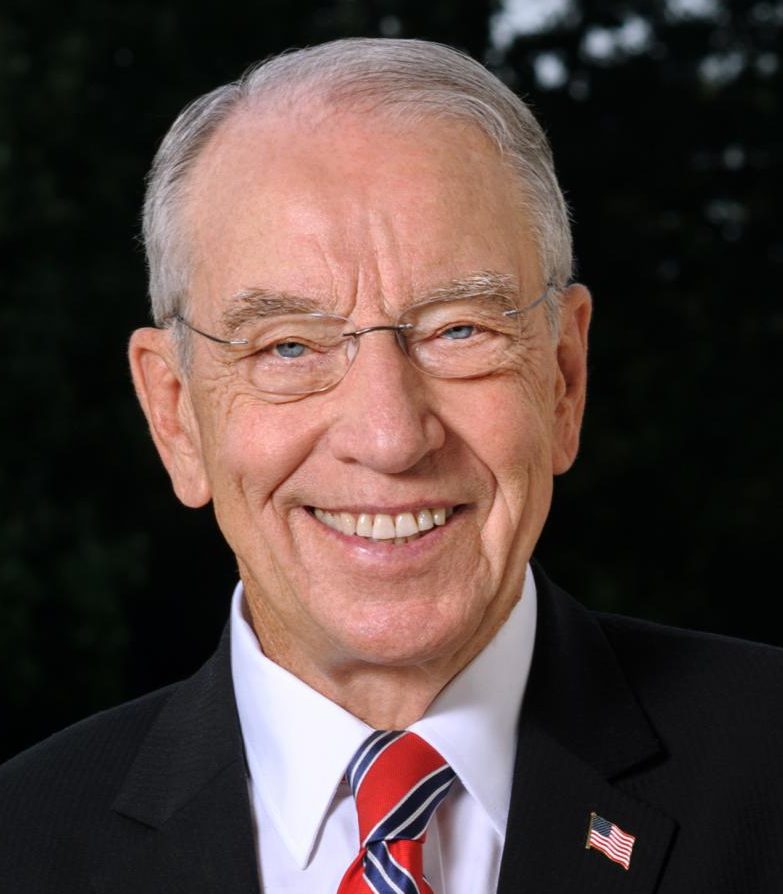Q: What would the Zero-Emission Vehicles Act mean for farmers and consumers?
A: The Zero-Emission Vehicles Act is a one-size-fits-all solution that would cut Rural America out of the clean energy economy. This far-reaching proposal would ban the internal combustion engine and result in a national mandate for electric vehicles (EV). The ideologically-driven effort underscores why the founders created a bicameral legislature. The 100-member U.S. Senate helps foster consensus-building to protect less populated states and put a check on government overreach. As Iowa’s senior U.S. Senator, I’ve long championed farmers and families who earn their livings and livelihoods in rural communities across America. I’ve secured clean energy laws to boost energy efficiency, protect our environment, grow energy independence and strengthen national security. My clean energy legislative victories score an extra advantage of expanding the farm economy and creating jobs in Rural America. We can’t allow coastal state lawmakers to dictate to Middle America how to live our lives or take away the freedom to choose what kind of car to buy. About half of the corn crop goes to make ethanol and other byproducts. Banning gasoline-powered cars would gut that market and lower corn prices. If ethanol plants shut down, they’d also stop producing a byproduct known as distillers grains, which are used as livestock and poultry feed. If biodiesel engines were outlawed, the demand for soybean oil would fall and lower the cash price of a bushel of soybeans. Consider the merits of the Renewable Fuel Standard. This clean energy policy has proven its effectiveness to help lower greenhouse gasses, expand consumer choice, strengthen the farm economy and enhance our energy independence.
President Bill Clinton famously said the era of Big Government is over. His proclamation didn’t age well in today’s Democratic platform. The Zero-Emission Vehicles Act would mandate the types of vehicles that automobile manufacturers are allowed to produce and sell. By definition, that impacts jobs in the car-making and auto services industry. Specifically, it would require 50 percent of sales for new passenger vehicles to be zero emission vehicles (ZEVs) by 2025 and mandate 100 percent of new sales for the U.S. passenger transportation fleet by 2035. To show how unworkable this is, consider 326,000 electric vehicles were sold in 2019, representing less than two percent of 17.2 million new vehicles sold in the U.S. last year. We would need to see approximately 2,500% increase in electric vehicle sales from 2019 to meet this government mandate by 2025. Requiring every American car buyer to purchase an electric vehicle would price lower-income families out of the market, force taxpayers to pay for subsidies, grants and incentives, zero-out the revenue stream for public infrastructure, roads and bridges and widen the rural-urban divide. Quite simply, this far left scheme is extreme government overreach that would strip away consumer freedom and take away opportunities for Rural America to continue innovating and fueling the world with clean, affordable, renewable energy.
Q: Why is the biofuels industry so important to Iowa?
A: Iowa is the nation’s leading producer of biofuels. Every year, Iowa produces more than 4.5 billion gallons of cleaner-burning, lower-cost renewable fuels to give motorists an affordable alternative at the pump. Iowa’s 43 ethanol refineries and 11 biodiesel facilities support 50,000 jobs. The electric vehicle mandate would zero-out liquid biofuels and void Iowa’s biofuels industry. It also ignores salient facts. First, renewable fuels can already reduce greenhouse gas emissions by 43 percent. That’s a sustainable, environmentally-friendly energy solution grown in America’s heartland. A federal EV mandate would plow under the stalks of farm-based innovation, slam the brakes on new efficiencies and reduce demand for corn and soybeans. It also ignores the fact that the majority of battery-operated cars would depend on fossil fuel generated electricity to recharge. According to the U.S. Energy Information Administration in 2019, 63% of electricity is generated by fossil fuels. That doesn’t compute to net zero-emissions. The proposal also stirs up an expensive hornet’s nest to build out a new electricity grid and power charging infrastructure, not to mention the challenges Iowa’s climate presents in the dead of winter. Iowans know that cold temperatures drain the juice out of batteries, and in the wintertime when motorists drive with the heater on, that sucks up more energy and means less range for battery-powered cars between recharging. No one behind the wheel of a car in Iowa in the middle of January wants to worry about a dead battery with no charging station available within 50 miles. A federal mandate is unfair and unreasonable in remote, rural areas. Biofuels are a leading partner in our nation’s all-of-the-above energy policy. They are protecting the environment and reducing greenhouse gas emissions. Rural America can’t afford an all-or-nothing approach to achieve clean energy. That’s why Sen. Joni Ernst and I fight tooth and nail for our farmers and biofuels producers and all Iowans who take part in conservation and take pride in protecting the environment.
















